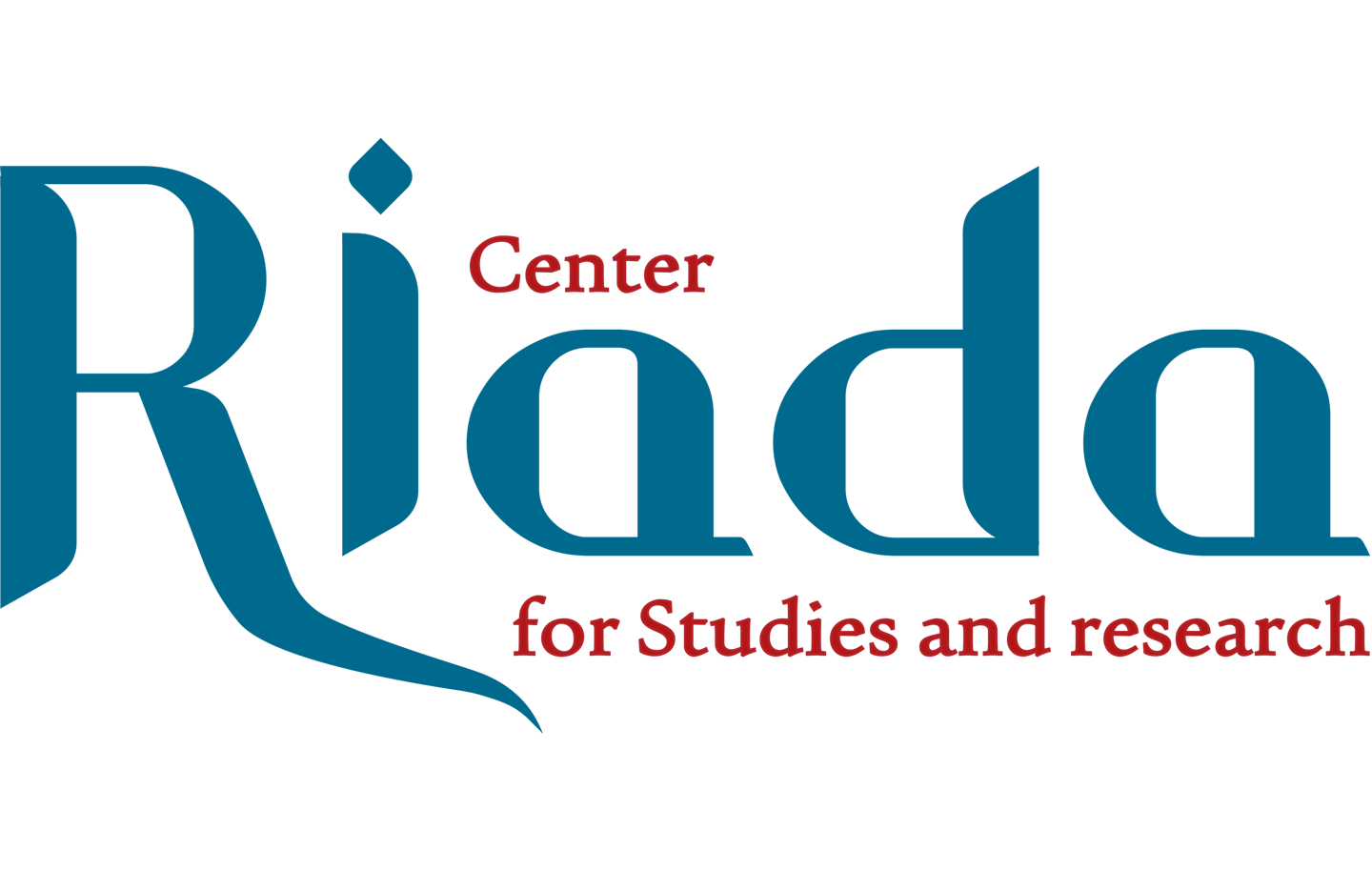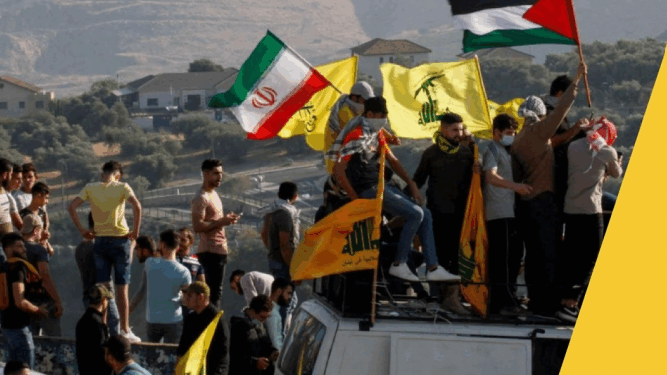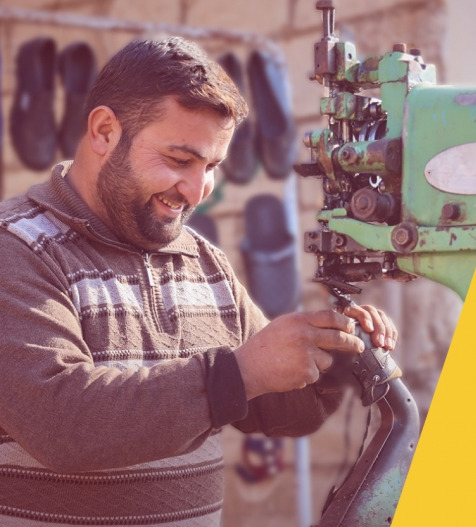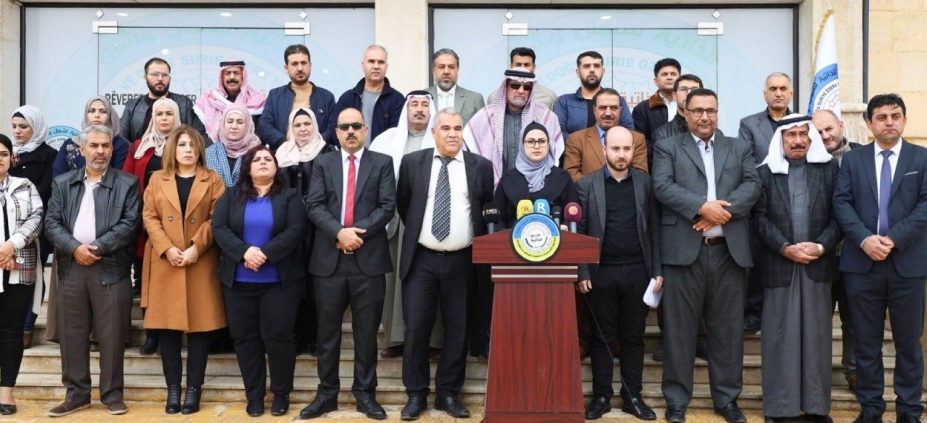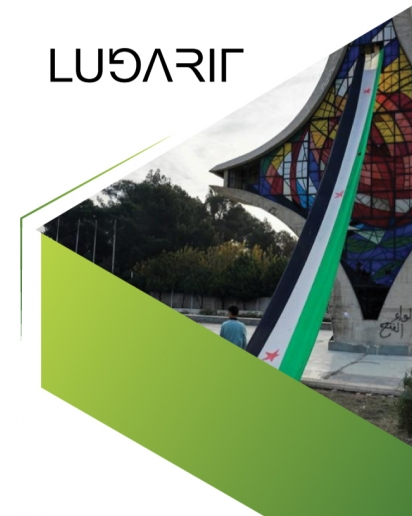General Summary
This briefing reviews the repercussions of the most important political, security, and economic events in Syria during September 2024. Politically, regional tensions escalated in Lebanon and Gaza, directly impacting the situation in Syria. As the Israeli war on Hezbollah intensified in Lebanon, the Assad regime’s strategy of adopting a cautious approach and attempting to play a neutral role emerged, attempting to maintain its regional balance and avoid antagonizing influential international powers. Security-wise, Israel intensified its attacks on Syrian territory, targeting Iranian military positions, arms transfer lines, and Hezbollah residential areas. US bases were also subjected to missile attacks from unknown sources. Meanwhile, northwestern Syria is witnessing security tensions at points of contact between regime and opposition forces. Economically, Damascus markets witnessed a significant increase in food prices due to increased demand following the influx of Syrians and Lebanese fleeing the Israeli escalation in Lebanon, leading to higher prices. The escalating tension in the Red Sea also delayed the delivery of petroleum products from Iran to Syrian ports, leading to a near-total halt in transportation in Damascus.
The regime’s strategy for dealing with regional developments: cautious neutrality and evasion
September 2024 witnessed a marked escalation in regional tensions, particularly in Lebanon and Gaza, which directly impacted the situation in Syria. As the Israeli war on Hezbollah intensified in Lebanon, the Assad regime’s strategy of adopting a cautious approach and attempting to play neutral was highlighted. The regime’s official statements regarding the Israeli attacks were timid, and it limited itself to issuing general statements avoiding direct escalation with Israel or the United States, in an attempt to maintain its regional balance and avoid antagonizing influential international powers. This behavior reflects the regime’s desire to protect its recent gains, especially after the Saudi embassy returned to operation in Damascus. This indicates a gradual improvement in the regime’s relations with some Arab countries, despite opposition from the United States and European pressure. The US Treasury Department imposed new sanctions on three individuals, five companies, and two ships accused of smuggling oil and liquefied gas to Syria for the benefit of Lebanese Hezbollah. This comes as part of US pressure on the Assad regime and its allies aimed at drying up the sources of funding it uses to bolster its influence in the region.
Assad appears keen not to sacrifice the normalization process, which has begun to benefit him economically and diplomatically. Therefore, he is avoiding regional confrontations that could expose him to harsher sanctions or further isolation. In the short term, the regime is expected to continue this approach, exploiting regional tensions to achieve limited gains without entering into open confrontations with Israel or provoking Western powers.
On the other hand, the regime’s amnesty decrees do not appear convincing. Amnesty International and Human Rights Watch described the latest amnesty decree as “hollow” and insufficient to open the door to any real reconciliation or political settlement, especially given the continued detention of thousands of civilians.
In the same context, Moscow continues to attempt to promote rapprochement between Damascus and Ankara, with Russian Foreign Minister Sergey Lavrov confirming that a new meeting will be held soon between the two sides. However, relations between the regime and Turkey remain at a standstill, as Ankara has denied any plans for a meeting between Erdoğan and Assad, reflecting the divergent positions between the two sides, particularly regarding the withdrawal of Turkish forces from northern Syria. The regime is likely to continue exploiting these talks as a means to strengthen its position on the ground without making significant concessions, prolonging the stalemate.
On the international level, the Syrian opposition seeks to maintain its political presence in cooperation with the United States and the international community. US Assistant Secretary of State Barbara Leaf met with opposition leaders to discuss the implementation of UN Security Council Resolution 2254. However, this presence, without real political impact on the ground, has not produced any tangible change in the political landscape, as international support for the opposition is limited and does not exert sufficient pressure on the regime to advance towards a political solution. However, the international community’s preoccupation with other crises in the region, such as Lebanon and Gaza, reduces the chances of achieving progress on the Syrian issue in the coming period.
Regarding the refugee crisis, the security and economic deterioration in Lebanon has exacerbated the suffering of Syrian refugees, forcing tens of thousands of Lebanese and Syrian refugees to cross into Syria, despite conditions on the ground not conducive to a safe and dignified return. This further complicates the humanitarian situation in Syria. The refugee crisis is expected to continue to worsen in the absence of clear political solutions, posing additional challenges for the international community to find more sustainable and comprehensive solutions.
Regional developments, particularly in Lebanon and Gaza, therefore appear to be a decisive factor in their impact on the Syrian situation in the coming period. The regime is betting that current events will once again require it to create a regional balance and ensure stability, thus continuing to remain in power and ending its isolation without taking serious steps toward a political solution or alleviating the ongoing humanitarian crisis.
The specter of a new war: a fragile security reality and an inflamed regional neighborhood
Israel launched a series of airstrikes against Iranian targets, most notably the Masyaf Research Center in Hama Governorate. This is part of the Israeli strategy to undermine Iran’s ability to develop advanced weapons in Syria. The more than 25 Israeli strikes also targeted a number of regime and Iranian military and security sites in the Damascus countryside, Homs, Hama, Tartus, and Daraa.
Meanwhile, regime forces continue to target areas in Idlib with suicide drones, artillery shells, and rockets, while Hay’at Tahrir al-Sham and allied factions target regime forces with “infiltration” operations, the most prominent of which was an attack launched in the first week of September that killed more than 10 regime soldiers. The international coalition also targeted a number of jihadists from Ansar al-Islam and others linked to the group, which is considered an opponent of Hay’at Tahrir al-Sham after refusing to join the al-Fath al-Mubin Operations Room.
On another note, the organization denied Russian allegations of engaging in talks with Ukraine regarding the dispatch of anti-Russian jihadists, claiming that the “immigrants” had no interest in doing so and were committed to its policies.
In northern Aleppo, the region witnessed factional tensions following the “Northern Falcons” Brigade’s refusal to dissolve itself in accordance with instructions from the Ministry of Defense of the Interim Government as part of the restructuring process. Instead, the faction merged with the “Al-Shamiya Front,” which later led to clashes between “Al-Shamiya” and its rivals, the “Sultan Murad” Division and the “Hamza” Division. These rivals fear the growing power of “Al-Shamiya” with the addition of a new faction and its repercussions on the balance of power among the northern factions.
In Daraa, the convoy of the governor and the secretary of the Baath Party branch was subjected to an assassination attempt using an improvised explosive device, less than a year after a similar attempt, amid continued security instability in the province. While regime checkpoints were attacked by local groups, former dissident groups refused to accept new settlements the regime was seeking to impose, fearing the regime’s approach of eliminating former opponents through arrests or assassinations.
In northern and eastern Syria, the US base in al-Shaddadi in the Hasakah countryside was subjected to a missile attack, prompting coalition forces and the SDF to be put on alert. US bases inside Syria have been subjected to 135 attacks by pro-Iranian militias since October 2023, including 36 attacks on the al-Omar oil field, 40 attacks on the Conoco gas plant base, 20 attacks on the Kharab al-Jir base, 17 attacks on the al-Tanf base, and 16 attacks on the al-Shaddadi base. It appears the region is poised for further attacks as the war in Lebanon and Gaza escalates and the risk of a regional war increases, especially as Syria has become a battleground for conveying messages and settling scores between regional and international parties.
Syria on the Brink of a New Humanitarian Crisis Amid Escalating Tensions
Damascus markets have witnessed a significant increase in food prices due to increased demand following the influx of Syrians and Lebanese fleeing the Israeli escalation in Lebanon, leading to price increases. Black market fuel prices have also seen record increases since the escalation of Israeli attacks on Lebanon. The price of a liter of gasoline has reached approximately 26,000 Syrian pounds, while the price of a liter of diesel has ranged between 24,000 and 30,000 Syrian pounds, given that it is currently in greater demand. Regarding regular prices, the Ministry of Internal Trade and Consumer Protection in the regime’s government announced three increases in fuel prices during September 2024 and the eighteenth since the beginning of the year.
Among the direct impacts of the Israeli escalation on Lebanon are a decline in trade and smuggling between Lebanon and Syria. Syria relies on goods arriving from Lebanon, both officially and through smuggling, including medicines, electronics, fuel, and cosmetics. Lebanon also represents a vital outlet for importing and re-exporting goods to Syria, especially in light of international sanctions imposed on Syria. The absence of these trade routes may prompt the search for alternative routes, such as the Jordanian and Iraqi borders, which are undoubtedly more expensive, potentially leading to a decrease in the supply of some goods and a rise in their prices in local markets. Furthermore, the war will affect the flow of dollars from Lebanon to the black market in Syria, potentially leading to a decline in the value of the Syrian pound in the coming days and weeks. Regarding the dollar, the regime’s government temporarily suspended operations for one week, imposing a decision requiring Syrian citizens to exchange $100 at border crossings upon entering Syria. This decision is in line with the emergency circumstances accompanying the Israeli aggression on Lebanese territory and the movement of delegations through the border crossings, with more than 50,000 people crossing from Lebanon into Syria in just a few days. Due to the ongoing events in the region and the worsening situation in the Red Sea, the delivery of petroleum products from Iran to Syrian ports has been delayed. This has led to a near-total halt in transportation in Damascus, with streets crowded with waiting citizens. Meanwhile, public and private buses are absent. Some minibuses and buses are exploiting people’s needs by charging double fares and overloading passengers. The regime has resorted to reducing transportation allocations and halting the supply of fuel to public transportation, which has led to its cessation.
The Jordanian authorities’ measures, which have imposed additional fees on Syrian trucks for three months, along with complex inspection procedures, have resulted in delays in the delivery of Syrian exports at the Jordanian-Saudi border and the spoilage of goods before they reach their destination country. This has led to traders halting the export of vegetables and fruits, resulting in heavy losses. Vegetable and fruit exports have declined from 150 refrigerators per day to only 10. Syrian vegetable and fruit exports have also witnessed a decline.
